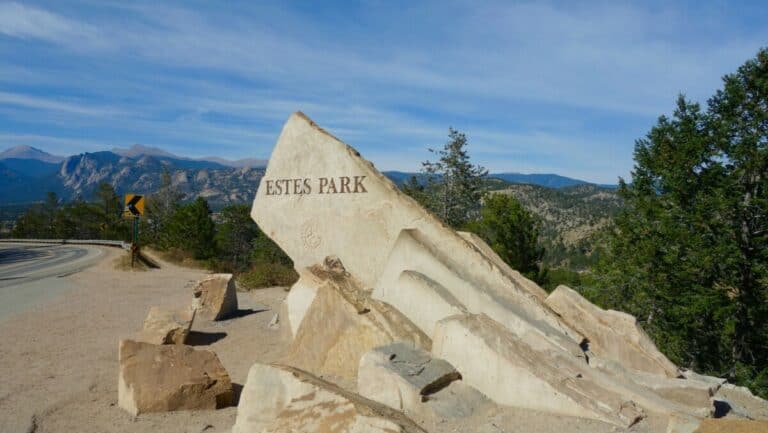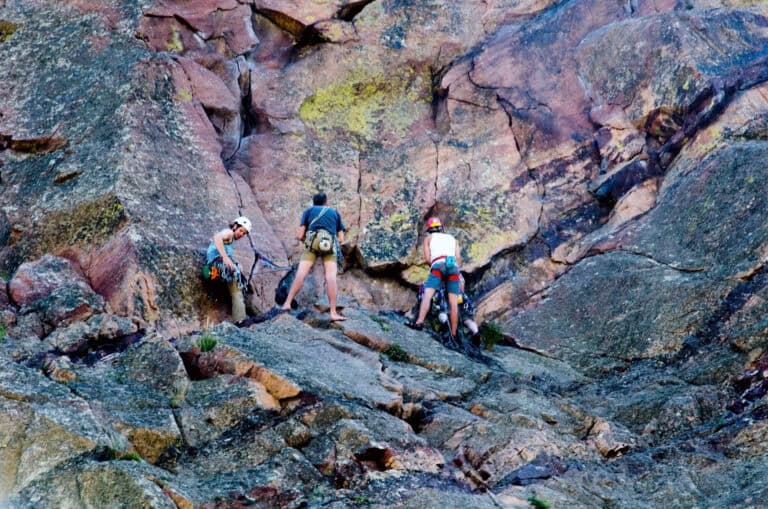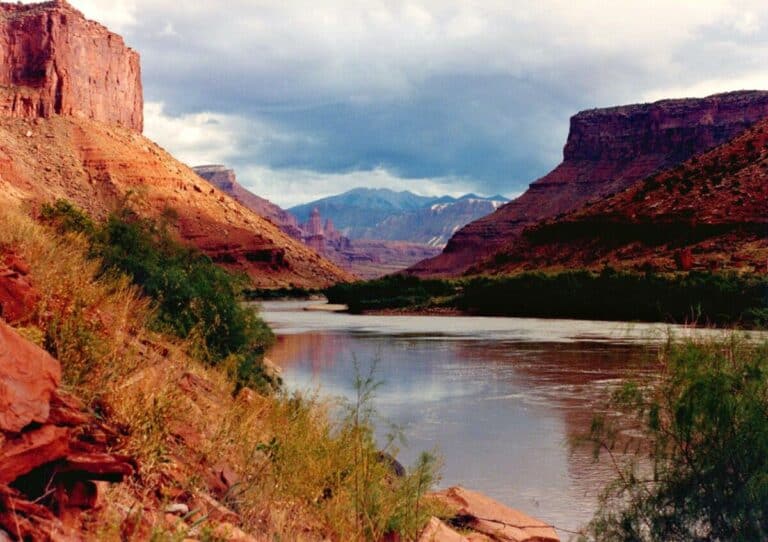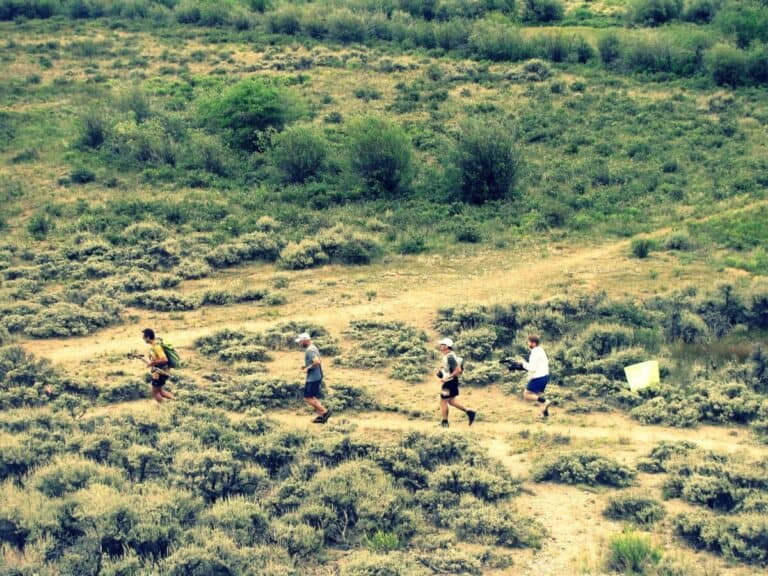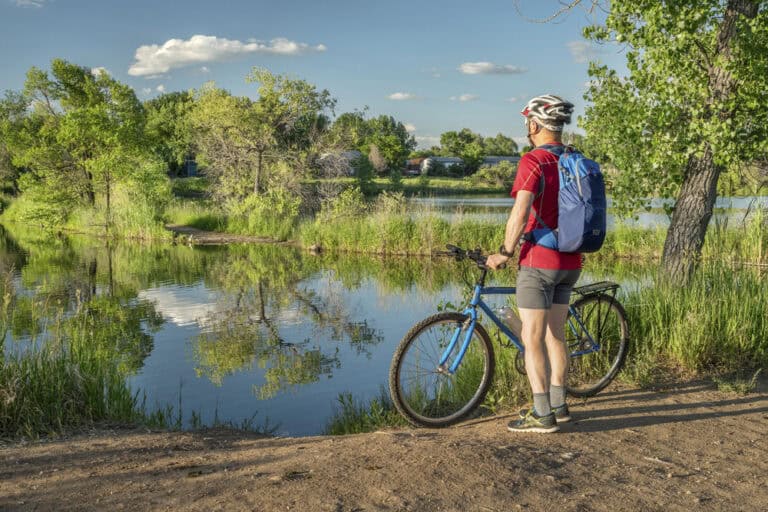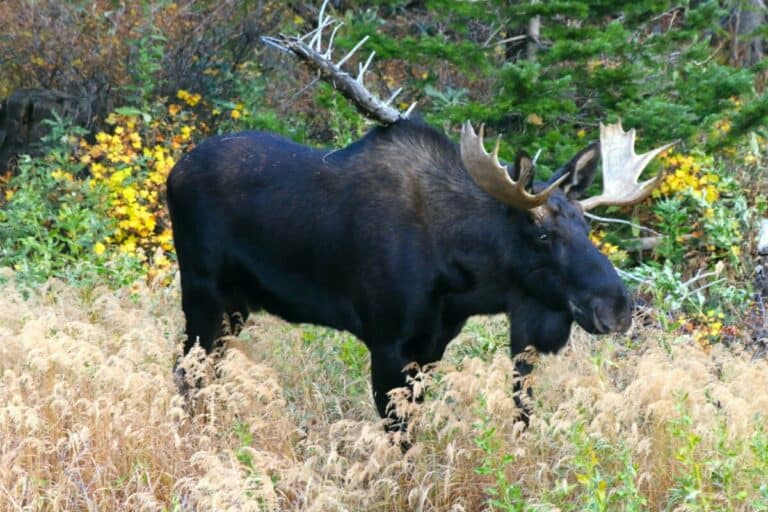The Easiest 14ers in Colorado (10 Summits Beginners Can Hike!)
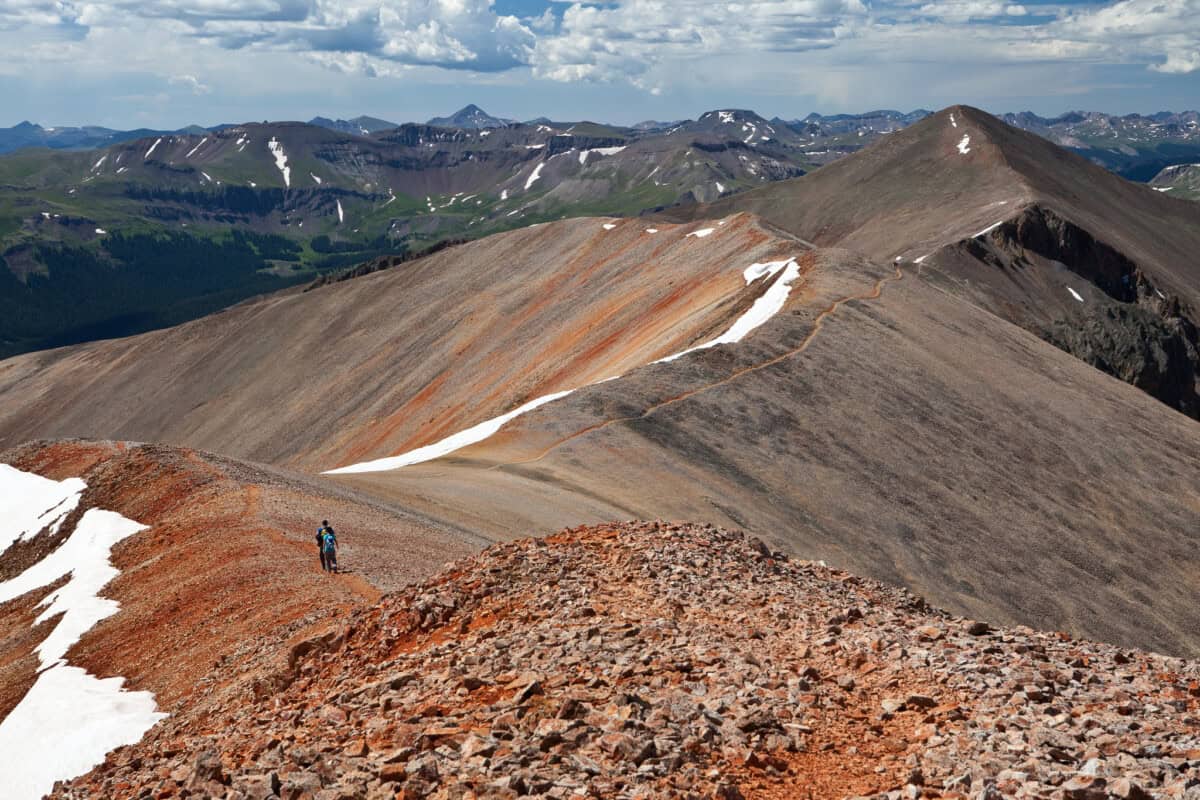
In Colorado we are blessed with a whopping 58 14ers—mountains towering above 14,000 feet. Some are intense, technical hikes requiring mountaineering skills, while others are beginner-friendly and a lot more forgiving.
This list covers the easiest 14ers in Colorado for beginner hikers who haven’t done many 14ers before.
“Easy” is relative—these are all still serious hikes with thin air and big elevation gain. Be careful, especially if you’re visiting from lower elevation!
Here’s what makes the 10 mountains listed below especially good for inexperienced mountaineers:
- Each peak listed below has well-marked trails
- Each hike has minimal scrambling or exposure
- Each hike has an overall manageable distance and elevation gain
Most mountains, including 14ers, are ranked using a Class 1–5 system that describes the difficulty of the route.
- Class 1 means the trail is well-marked and easy to follow, with no need for hand support.
- Class 2 involves some scrambling and uneven terrain where you may occasionally use your hands.
- Class 3 requires frequent use of hands for balance and includes sections with more exposure.
- Class 4 and 5 routes are technical climbs, often requiring ropes and climbing experience.
This guide includes only Class 1 and Class 2 peaks. The mountains are not ordered by difficulty–any of them could be appropriate for a beginner as long as you plan ahead!
Note: all the distances given are round-trip.
#1. Mount Bierstadt
Mount Bierstadt is the go-to choice for many hikers tackling their first 14er. It’s one of the most accessible and forgiving high-altitude hikes in Colorado.
| Distance | Elevation Gain | Difficulty |
| 7 miles | 2,850 ft | Class 2 |
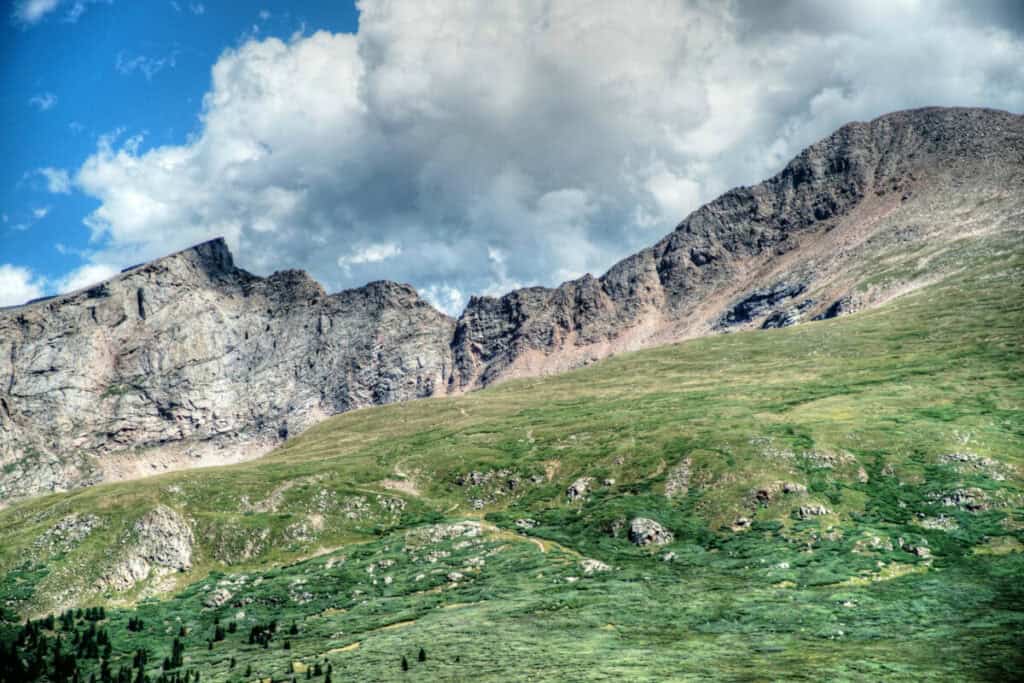
Highlights:
- Well-marked, easy-to-follow trail
- Close to Denver (via Guanella Pass)
Mt. Bierstadt is a solid test of your fitness and acclimation at altitude without any technical sections.
Crowds are common, especially on weekends, and the lower section through the willows can get muddy. Moose are also sometimes seen near the trail—give them plenty of space.
#2. Quandary Peak
Quandary Peak is one of Colorado’s most popular 14ers—and for good reason. It offers a Class 1 route with no technical terrain, making it ideal for first-time summit attempts.
| Distance | Elevation Gain | Difficulty |
| 6.6–6.7 miles | ~3,400 ft | Class 1 |
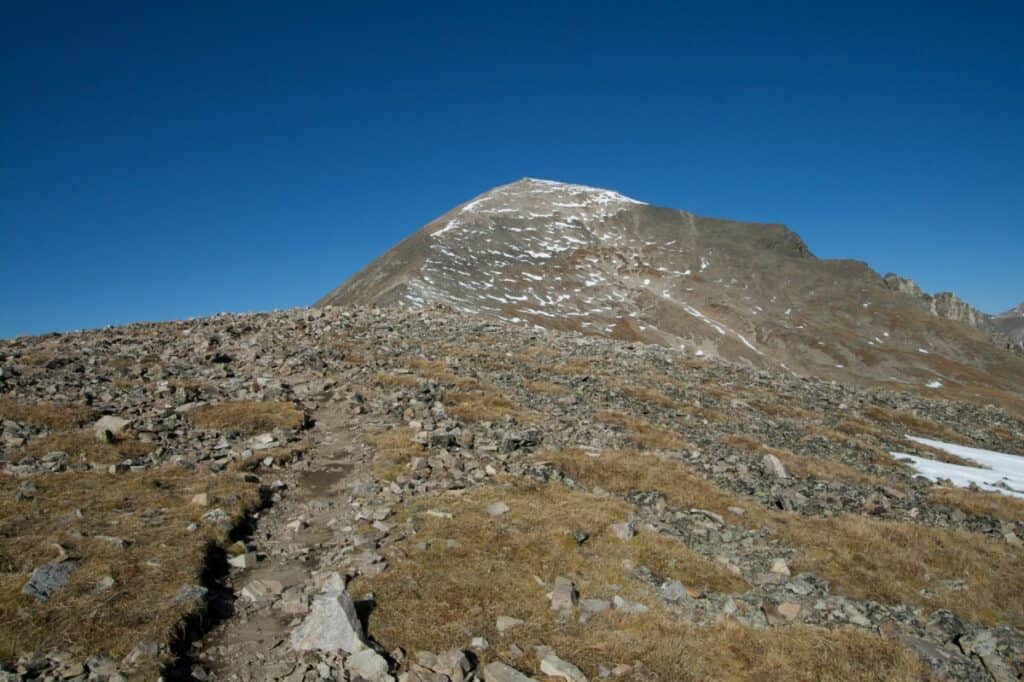
Highlights:
- Wide, steady ridgeline trail with great footing
- Outstanding views of Breckenridge and surrounding peaks
- Minimal exposure, no scrambling
The trail is frequently traveled, so route-finding is rarely an issue. Due to its popularity (Quandary is probably the busiest 14er in Colorado!), the trailhead requires parking reservations during summer. Plan to arrive early to avoid crowds and afternoon storms.
#3. Grays Peak & Torreys Peak
Grays and Torreys Peaks are a two for one that’s perfect for motivated beginners. A wide, well-maintained trail leads to a saddle between the peaks, so you can grab both summits in a single hike.
| Distance | Elevation Gain | Difficulty |
| 8–8.6 miles | 3,600 ft | Class 2 |
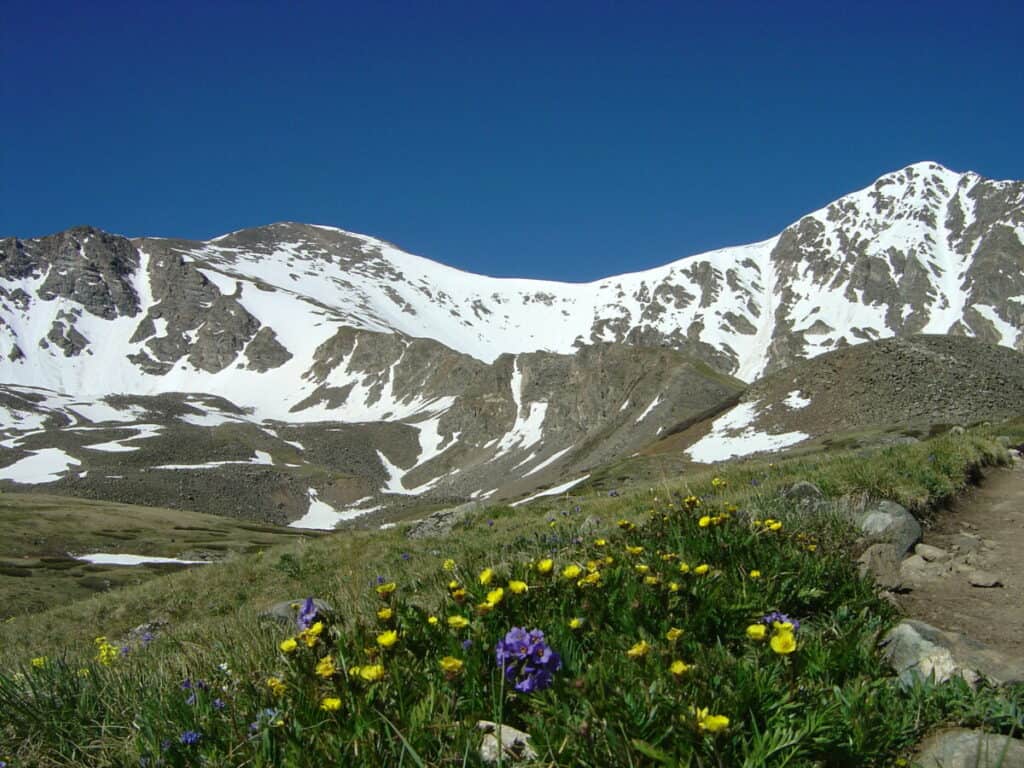
Highlights:
- Two 14ers in one day
- Well-established route from Stevens Gulch
- Stunning alpine views and frequent mountain goat sightings
The access road can be rough—high-clearance vehicles are recommended. The trailhead fills up quickly, so make sure to get an early start.
#4. Mount Sherman
Mount Sherman is one of the shortest and most beginner-friendly 14er hikes in Colorado. The route is straightforward, and there’s very little exposure throughout the hike.
| Distance | Elevation Gain | Difficulty |
| 5.2 miles | 2,100 ft | Class 2 |
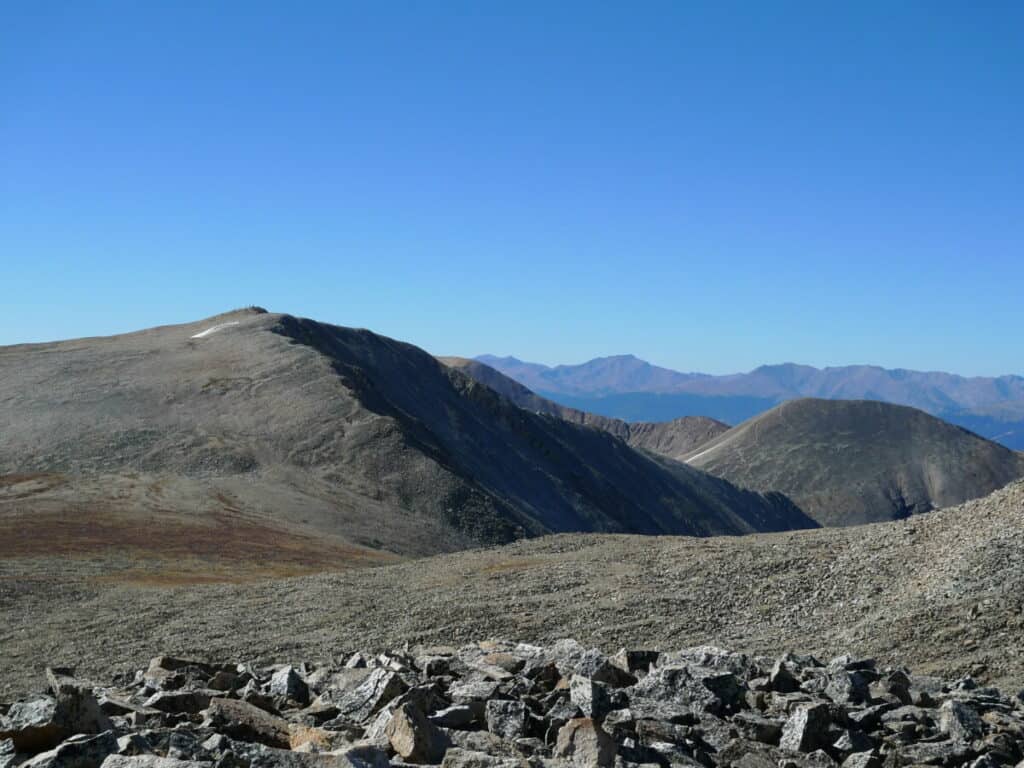
Highlights:
- High trailhead means less elevation gain
- Direct, well-traveled path to the summit
- Old mining ruins and historic structures are scattered along the hike
This peak offers amazing views with few technical challenges. Overall, it’s a fairly quick ascent, making Mt. Sherman a perfect 14er for beginners!
#5. San Luis Peak
San Luis Peak is one of the most remote 14ers in Colorado, offering a quieter experience and stunning alpine scenery. The trail is long but features a consistent, gradual climb that makes it approachable for fit beginners.
| Distance | Elevation Gain | Difficulty |
| 13.5 miles | 3,600 ft | Class 1 |
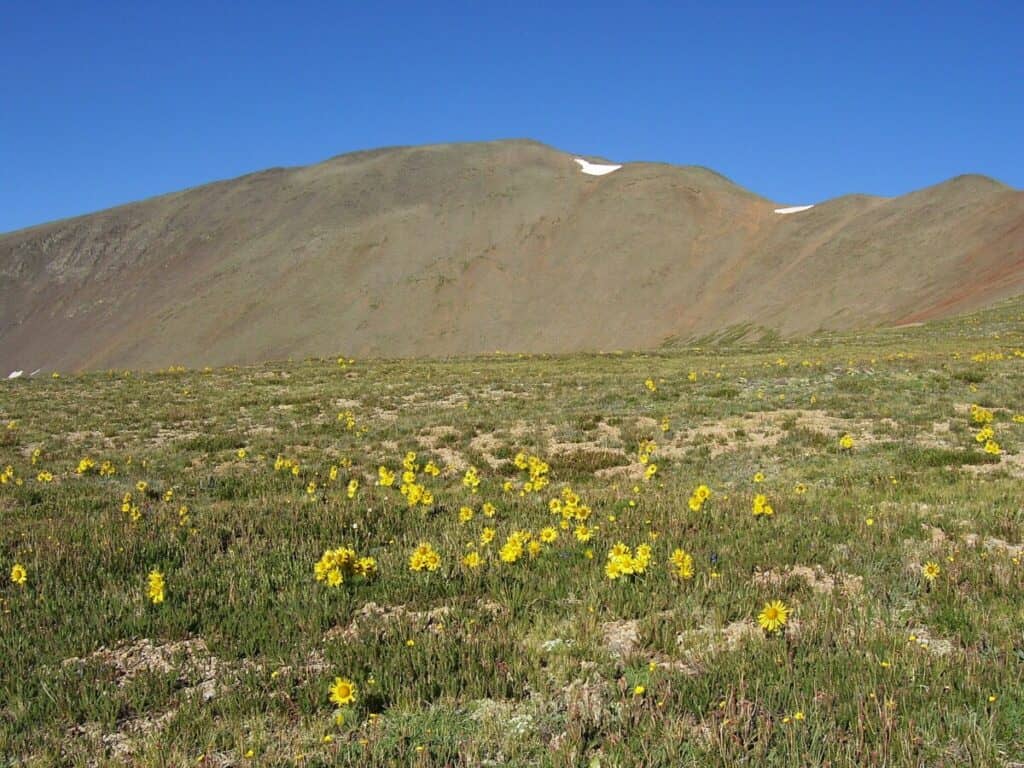
Highlights:
- Quiet trail with low crowds
- Rolling terrain through wildflower-filled meadows
- Gentle grade makes it an ideal training hike for bigger peaks
Expect a long day, but without really any technical difficulty. Plan ahead for the remote access and make sure you pack accordingly.
#6. Redcloud Peak
Redcloud Peak offers a scenic and steady ascent with some of the most unique red rock terrain of any Colorado 14er. The route is straightforward and smooth above treeline, with panoramic views nearly the entire way up.
| Distance | Elevation Gain | Difficulty |
| 9 miles | 3,700 ft | Class 2 |
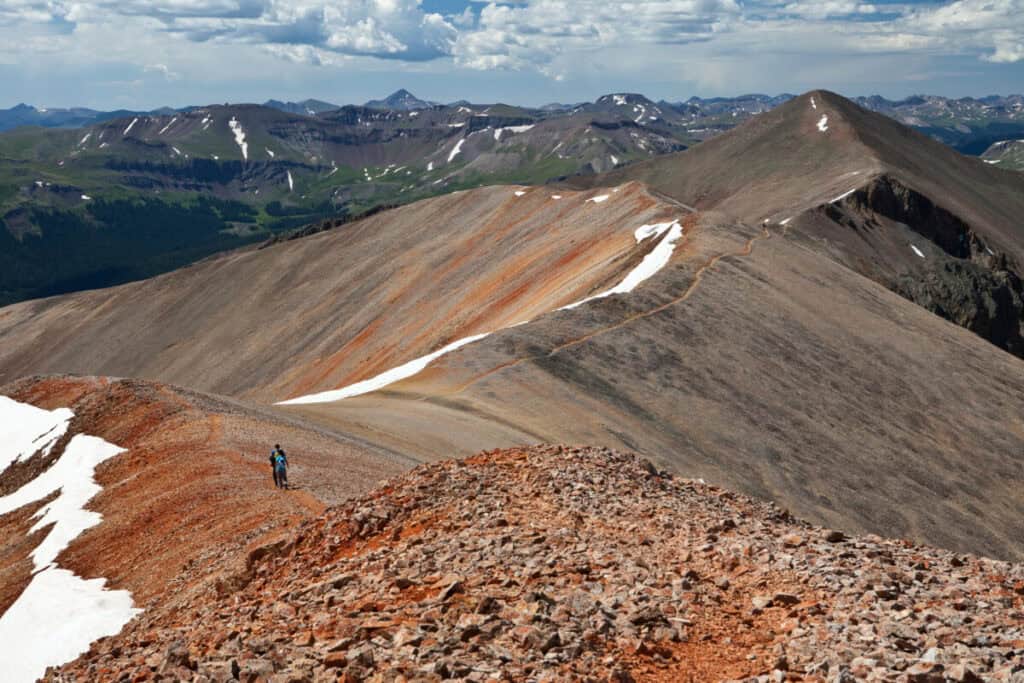
Highlights:
- Colorful slopes and alpine ridgelines
- Often paired with nearby Sunshine Peak for a two-summit day
- Minimal scrambling
Redcloud is a rewarding hike, great for newer hikers looking for a quieter and more scenic climb.
#7. Handies Peak
Handies Peak is widely considered one of the easiest 14ers in terms of effort, thanks to its short mileage and a climb that’s more steady than steep. Tucked in the San Juan Mountains, the trail offers peaceful solitude and dramatic alpine views.
| Distance | Elevation Gain | Difficulty |
| 5.3 miles | 2,430 ft | Class 1 |
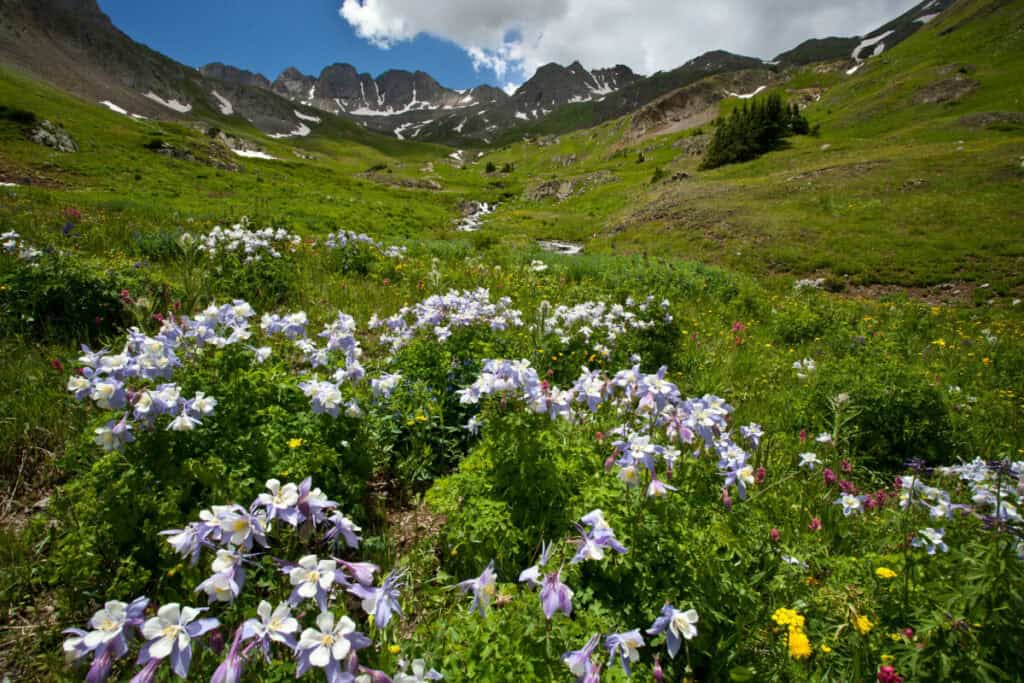
Highlights:
- Gentle, scenic route
- Quiet surroundings with lush meadows and clear skies
The trailhead is best reached with a 4WD vehicle, but you can park lower to add mileage.
#8. Culebra Peak
Culebra Peak is one of the few privately owned 14ers, requiring a reservation and a $150 access fee. The trail is well-managed, approaching on gentle terrain with a smooth ridge to the summit.
| Distance | Elevation Gain | Difficulty |
| 5 miles | 2,700 ft | Class 2 |
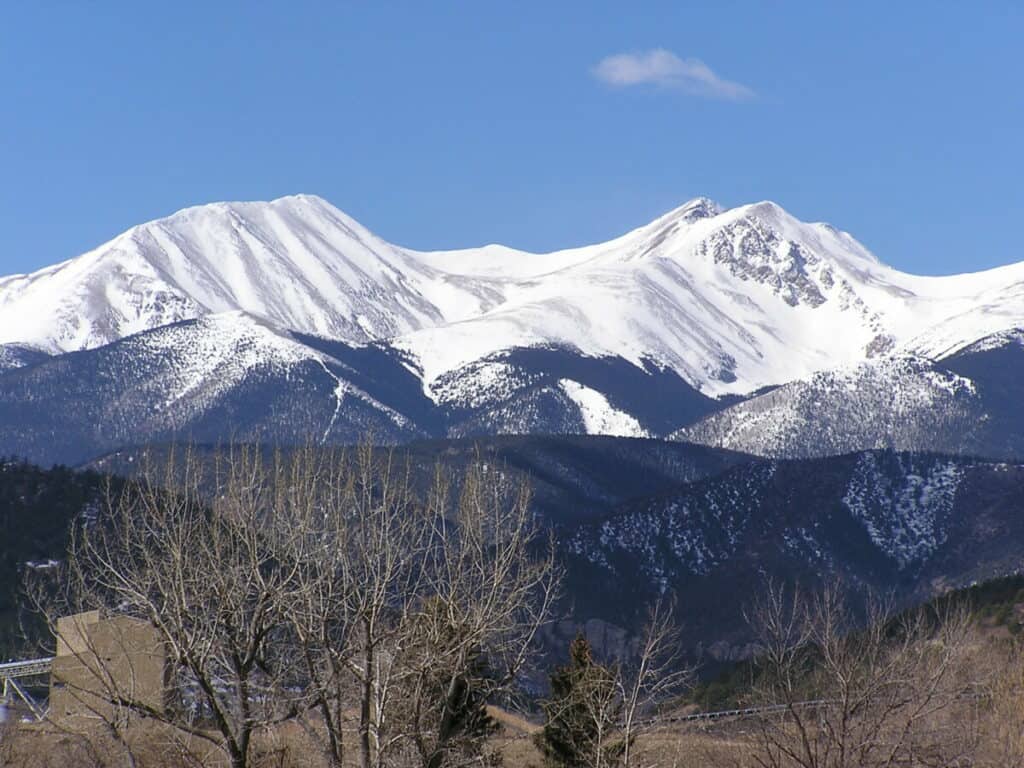
Highlights:
- Wide-open slopes with no technical challenges
- Permit system keeps the trail uncrowded
Culebra is a beautiful peak with an easy approach—just make sure you reserve in advance.
#9. Mount Elbert
Mount Elbert is the tallest peak in Colorado at 14,433 feet, but it’s also one of the most beginner-accessible high summits. Despite the elevation, the trail features a gradual ascent with no technical terrain.
| Distance | Elevation Gain | Difficulty |
| 9.5 miles | 4,640 ft | Class 2 |
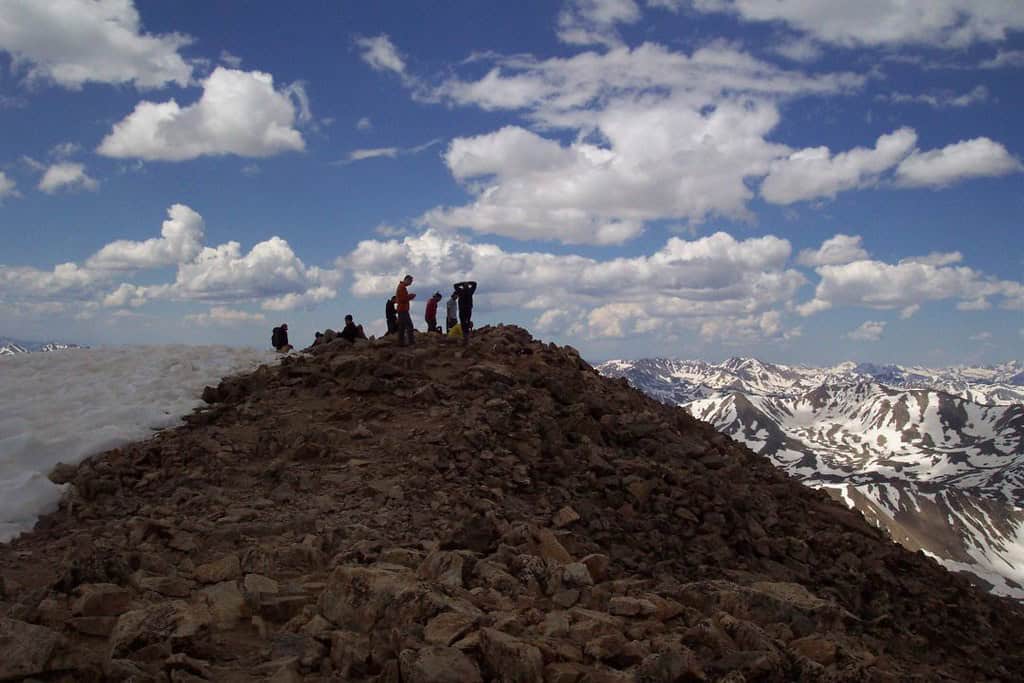
Highlights:
- Well-marked route with minimal exposure
- Long but manageable climb for fit hikers
- Wide-open views from the highest point in the Rocky Mountains
Some steeper sections of trail near the bottom are a bit more challenging, but overall it’s a steady, straightforward climb to the highest point in Colorado.
#10. Pikes Peak (via Crags or Devil’s Playground)
Pikes Peak offers multiple hiking routes, making it one of the most flexible 14ers for beginners. You can choose between a short 5.5-mile route from Devil’s Playground or a longer 13.1-mile option from Crags Trailhead.
| Trailhead | Distance (RT) | Elevation Gain | Difficulty |
| Devil’s Playground | 5.5 miles | 1,200 ft | Class 1 |
| Crags Trailhead | 13.1 miles | 4,300+ ft | Class 1 |
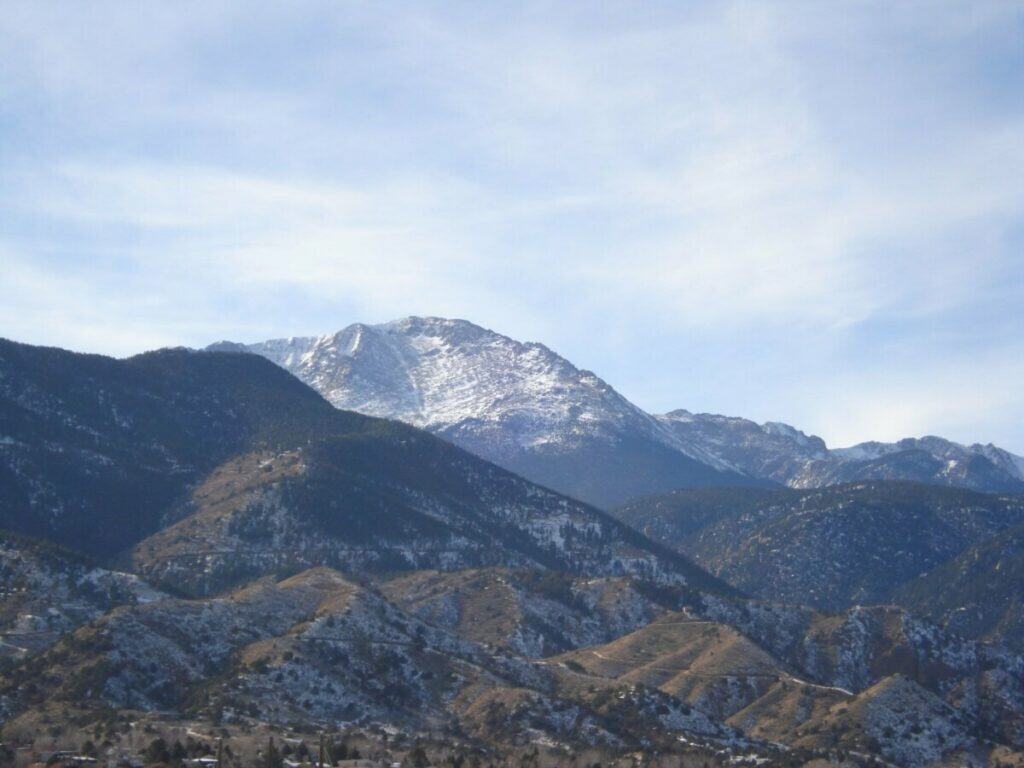
Highlights:
- Gentle trails lined with wildflowers and scenic overlooks
- Regular wildlife sightings including marmots and bighorn sheep
- A true summit hike (beats driving or taking the cog railway!)
Pikes Peak is a favorite choice for beginning hikers, with great flexibility and classic Colorado views.
What 14ers Can You Drive to the Top of?
If you’re not ready for a full 14er hike, there are a couple of peaks in Colorado you can drive (or ride) to the summit.
These 14ers are great for sightseeing or getting a feel for high elevation before committing to a real ascent.
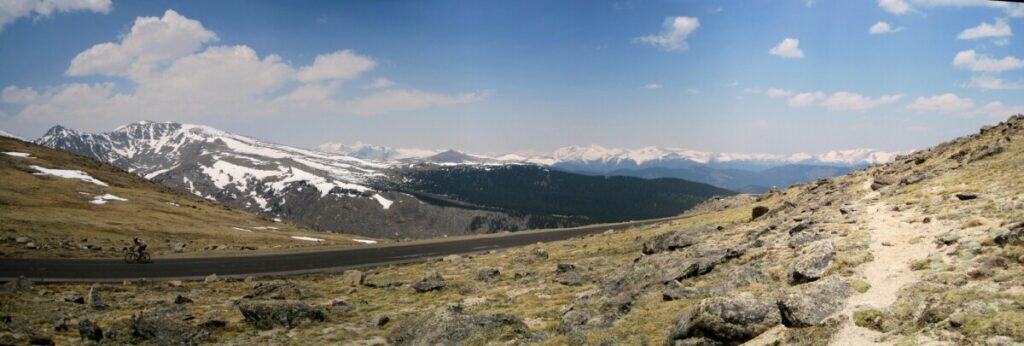
Mount Blue Sky (Mount Evans)
- Paved road leads to a parking lot near the top
- Quick 5–10 minute walk to the summit block
- Optional 5.5-mile trail from Summit Lake
- Ideal warmup or altitude practice
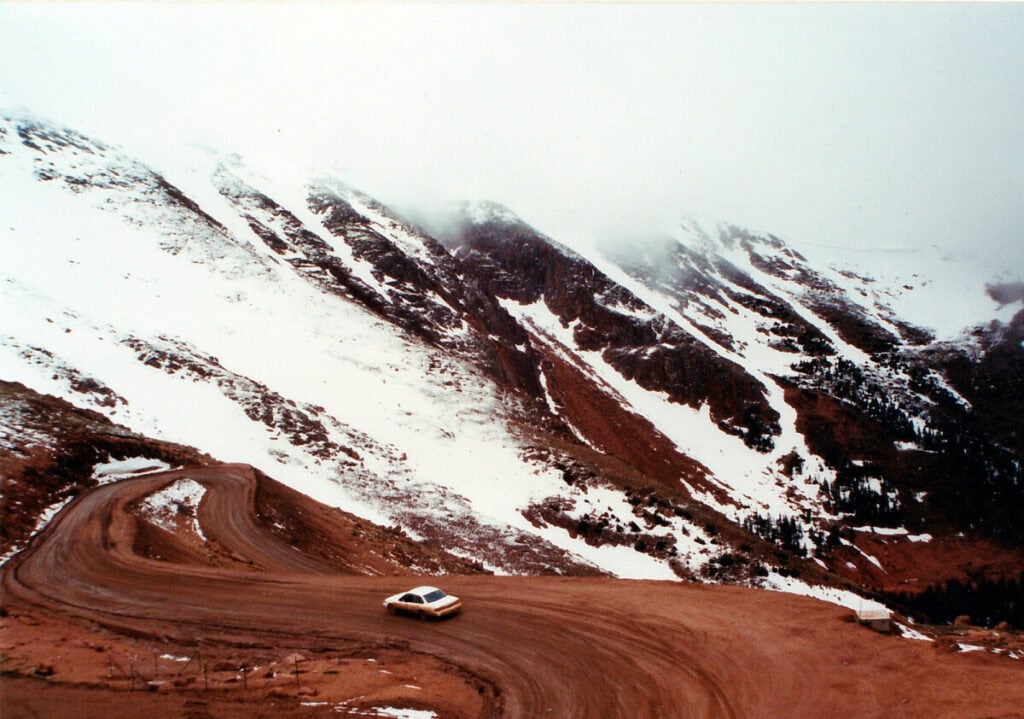
Pikes Peak (Highway or Cog Rail)
- Drive or take the cog railway to 14,115 ft
- Same summit as the hiking route
Tips for New 14er Hikers
Hiking a 14er is a lot different from your typical day hike—preparation matters. These peaks demand substantial effort, even the easier ones. Use the tips below to stay safe and set yourself up for a successful summit:
- Start early (by 5–6 AM) to avoid storms
- Bring plenty of water, high-energy snacks, and layers
- Use sun protection—UV is stronger at altitude
- Watch for altitude sickness: headache, nausea, dizziness
- Know your limits and be willing to turn around
- Go with someone experienced if it’s your first summit
Stay alert, stay humble, and enjoy the climb!
Colorado 14ers FAQ
What’s the easiest 14er in Colorado overall?
Mount Bierstadt or Quandary Peak are the easiest 14ers in Colorado—both have well-marked trails and no technical sections.
Can I drive to the top of any 14ers?
Yes, you can drive up 2 Colorado 14ers! Mount Blue Sky and Pikes Peak both have paved roads to the summit.
Which 14ers have the least elevation gain?
Pikes Peak (Devil’s Playground) and Mount Sherman have the least elevation gain out of Colorado’s 14ers, offering shorter climbs from high trailheads.
What should I bring for a 14er hike?
Essentials to bring when you’re hiking a 14er include water, food, layers, sunblock, a map, and a headlamp.
Do I need a permit?
You only need a permit for Culebra Peak and a few 14ers with seasonal timed entry systems.


